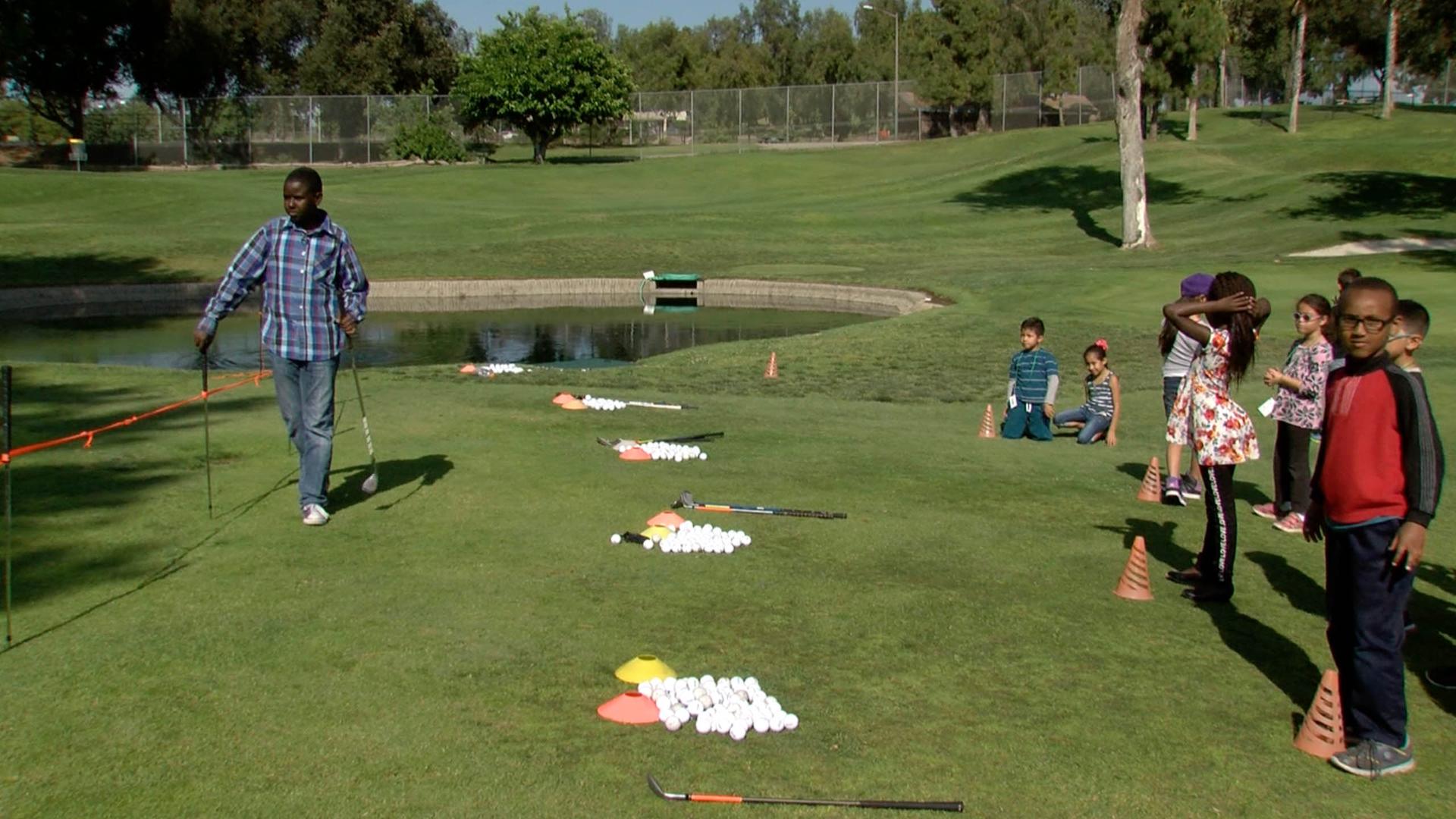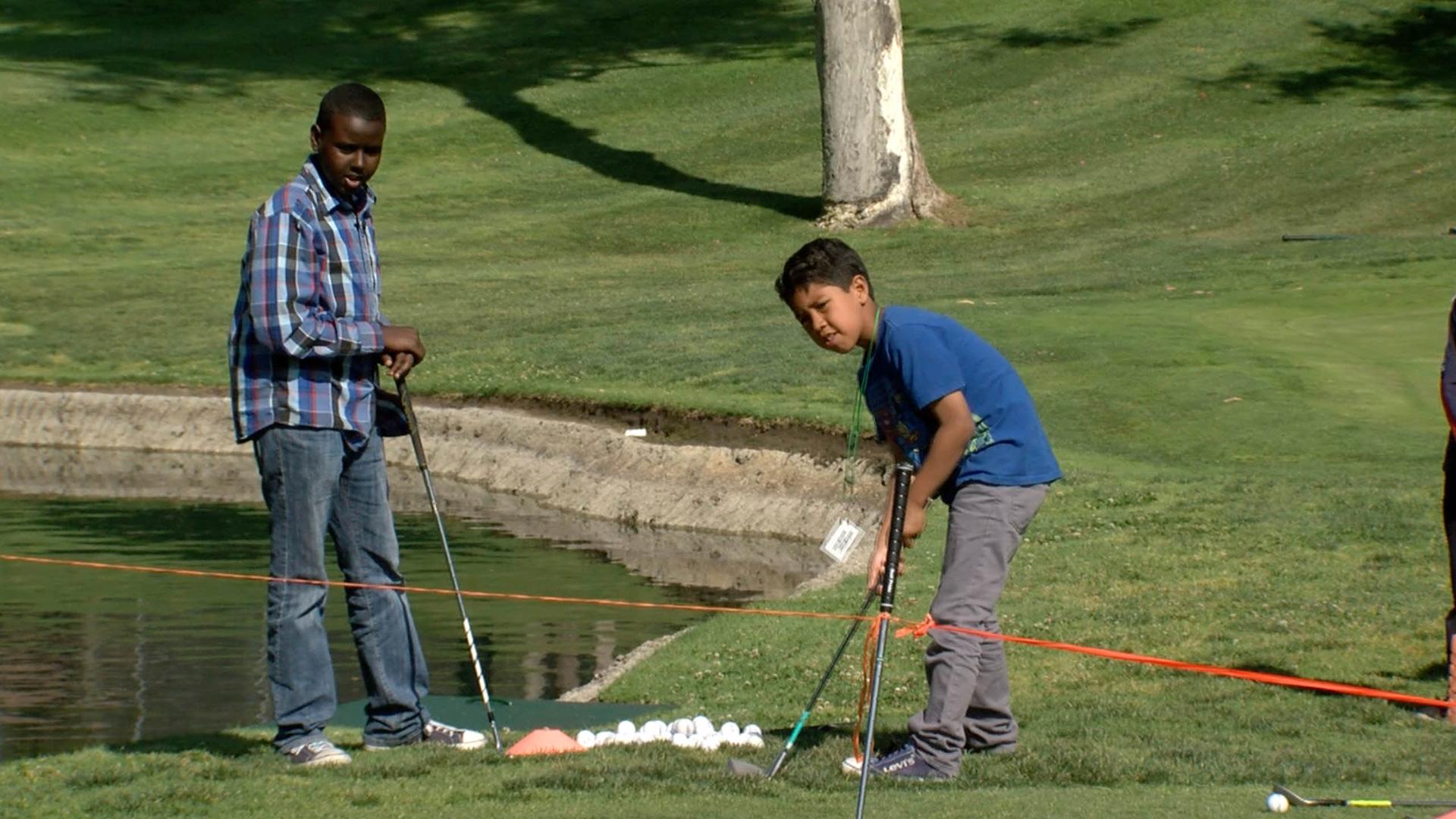Zubeyr Mohamed, left, gives a first-grade student tips on how to improve his golf skills at Pro Kids in San Diego.
Zubeyr Mohamed is only 12 years old, but he gives golf tips to younger students, part of an after-school program called Pro Kids. It’s had him out at the links six days a week for four years. He says he’s also learned some life skills along the way, especially: “Patience and persistence."
“Honestly, you can’t give up on anything," Zubeyr says, "and at the same time, you have to be patient, ‘cause you can’t rush to things, you know?”
Zubeyr recently wrote a report for Pro Kids about how golf is becoming a more inclusive sport. “In the old times, mostly rich people and wealthy people wanted to play and said that other people, the common people, could not play.” That wasn’t right, says Zubeyr. Why couldn’t kids like him — whose parents are from Somalia — also enjoy golf?
That’s what Pro Kids is trying to do. It was founded in 1994 by Ernie Wright, an African American caddie. He wanted to teach golf to disadvantaged youth, while also connecting them with academic tutors, scholarships and trips to pro golf tournaments.
He also fixed up a rundown golf course in City Heights, a heavily immigrant area of San Diego. That’s where Zubeyr plays, and his game is getting pretty good — scoring 45 or lower over nine holes.
The golf course is next to a Pro Kids educational center that offers kids tutoring. More than half of the 1,500 students enrolled at Pro Kids are immigrants or refugees.

Zubeyr’s mom, Maha Hussein, says Pro Kids has transformed her son. “My son, he was chubby, he was frustrated after school sitting home,” Hussein says, noting that her son has lost weight since playing golf daily. She also likes that Pro Kids offers her son some structure while she’s working 56-hour weeks as an elder care provider. And she sees the program’s academic support paying off; Zubeyr is earning straight A's. “Since the kids are playing now, I feel like they’re achieving more.”
Keith Padgett runs the Pro Kids program and has a theory about why it works: Children learn geometry and physics on the golf course. “It’s all about angles. Your swing is an arc,” he says. “We have kids learning how different surfaces affect the rolling of the ball.”
Padgett adds that golf is the rare sport where players must call penalties on themselves. “If that ball moves, you take a penalty. You call it on yourself, you don’t need somebody over here to say you just violated a rule — you’re supposed to report that.”
Playing with Zubeyr is Nasteho Ali, a fifth-grader whose parents are also from Somalia. She says golf has helped her with math. “Because you get a number of strokes on a hole, and you need to add it up on your scorecard, and in school, I’m also doing addition, so it helps in school,” Nasteho says.
Her mom, Maryan Ali, likes this, even through she’d never seen a golf course before arriving to the US. But she tried playing recently with her kids’ help. They said her technique was off. She says golf isn’t as easy as it looks.
How do you educate a Global Nation? Read more of our coverage of immigration and education. Then join the conversation in the Global Nation Exchange on Facebook.
